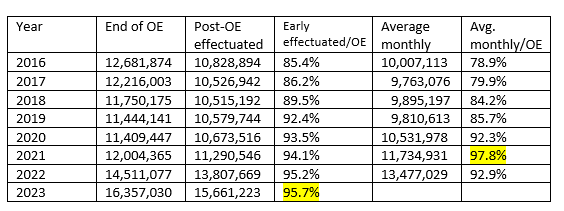Note: All xpostfactoid subscriptions are now through Substack alone (still free), though I will continue to cross-post on this site. If you're not subscribed, please visit xpostfactoid on Substack and sign up!
 |
| “Then,” I cried, half desperate, “grant me at least a new servitude!” |
The corruption of U.S. healthcare by the profit motive reaches a kind of apotheosis in the incursions of private equity into industry subsectors (hospice, nursing homes) and targeted physician practice specialties — e.g., the PEAR specialties (pathology, emergency, anesthesiology, radiology), dermatology, ophthalmology gastroenterology, orthopedics, and others. It’s common PE practice to load an acquisition with debt and then laser-focus on cutting costs and maximizing revenue.
In Private Equity and the Corporatization of Health Care, a paper posted in March 2023 (with a 2024 publication date in the Stanford Law Review), Erin C. Fuse Brown and Mark A. Hall acknowledge that “it remains unclear whether private equity investment is fundamentally more threatening to health policy than other forms of acquisition and financial investment,” but at the same time assert:
Even if PE investment in health care poses risks that are not unique to PE, it appears to heighten those risks by being more adept or ruthless at identifying profit opportunities and economies of scale among previously fragmented providers, consolidating physician specialty markets and raising costs as they go.’
